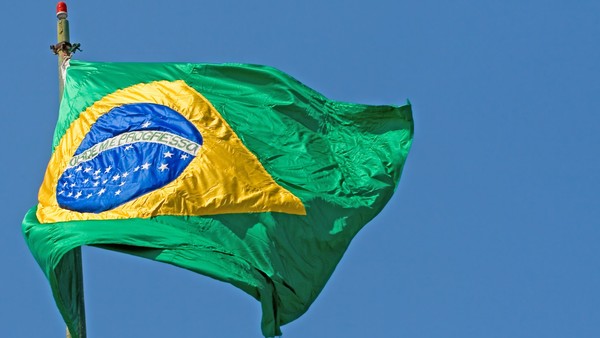January 6, 2016 9:03 am
Avenida Paulista, the main thoroughfare in Brazil’s business capital, São Paulo, was a shadow of its usual merry self this Christmas.
Absent were the traditional extravagant Christmas decorations for lack of a private sponsor. The country’s deepening economic crisis, it seems, robbed would-be corporate donors of their customary seasonal good humour.
It is a pattern that seems likely to be repeated in Brazilian markets in 2016 with investors returning from the new year festivities in a sour mood. There is not much to look forward to — an expected impeachment process starting in February or March is likely to deepen a political crisis this year while the economy is heading for its second year of recession.
To top it off, Brazil’s main trading partner, China, is facing its own problems, hitting Brazilian stocks and the country’s currency, the real, when markets opened this week.
“This is not some sort of little political crisis, it is a full-fledged recession with external headwinds,” says Michael Bolliger, executive director, chief investment office of UBS Wealth Management in Zurich. “There is a reason that Brazil trades at the levels where it trades.”
Brazil is expected to have had one of its worst years in terms of economic growth in 2015.
A survey of economists by the central bank taken on December 31 showed they expected gross domestic product to have contracted 3.71 per cent in 2015 and believe it will fall another 2.95 per cent this year as commodity prices weaken and the credit boom fades.
To add to the stagnation, they expect inflation to have reached 10.72 per cent last year and see it ending 2016 at 6.87 per cent — above the central bank’s target of 4.5 per cent, plus or minus 2 percentage points.
The benchmark Ibovespa stock index, meanwhile, has fallen in each of the past three years, finishing down nearly 9 per cent in 2015. The real, meanwhile, lost nearly 50 per cent of its value against the dollar last year.
In spite of Brazil’s terrible 2015, optimists predicting a rebound this year are hard to find. Neil Shearing, economist at Capital Economics, says he is marking down some of his forecasts “in response to the deepening economic and political crisis in Brazil”.
“We now expect interest rates to be raised further, the currency to weaken a little more and the economy to contract again this year,” he adds.
Undermining investor confidence is a growing government budget deficit running at just under 10 per cent, analysts say. Left-leaning president Dilma Rousseff hired fiscal hawk Joaquim Levy as finance minister last year to try to raise taxes and cut spending. But he resigned just before Christmas after congress thwarted his plans following opposition from within her ruling Workers’ Party, the PT, and Brazil lost its prized investment-grade credit rating.
He was replaced by Nelson Barbosa, a career bureaucrat seen as closer to Ms Rousseff. This has sparked concerns that the government will give in to calls from the PT’s left to return to the budget stimulus policies of recent years that analysts say left Brazil’s public finances overstretched in the first place.
Fresh from their victory over Mr Levy, there are signs the PT and its base in Brazil’s labour unions are now targeting the central bank.
PT party president Rui Falcão has attacked the central bank’s efforts to control inflation through high interest rates. While analysts still believe Ms Rousseff is unlikely to intervene lightly in the autonomy of the central bank, she is facing her own problems with the impeachment process and a crippling corruption scandal at state-owned oil company Petrobras that has implicated many in her ruling coalition.
Backed by the opposition, the impeachment centres on how her government used accounting tricks during its first term to disguise the true state of the budget deficit — measures for which it has been condemned by the public finances watchdog, the TCU.
If the opposition, which is still struggling to mount the necessary two-thirds of congress needed to impeach her, begins to get the upper hand, she is likely to heed the calls from the left of the PT and rein in the central bank.
“We expect Rousseff to continue defending the bank’s operational autonomy, so long as she is confident that she can survive impeachment,” says Chris Garman, analyst at Eurasia Group. “But the risk of political interference will grow if Rousseff calculates she is at greater risk of losing the impeachment battle.”
Mr Bolliger of UBS Wealth Management says all of this amounts to opportunities for bold investors able to look at riskier assets in Brazil. Many Brazilian companies remain well-managed but deterring investors is the acute uncertainty over the political outlook and what it will mean for the real. If this can be resolved, there could be more inflows into Brazilian assets.
“If and when we are more advanced in this impeachment space and we get some more clarity there, then Brazil might become a very interesting market. The question I receive from clients across the globe is: ‘When can we buy’,” Mr Bolliger says.
Copyright The Financial Times Limited 2016. You may share using our article tools.




No comments:
Post a Comment